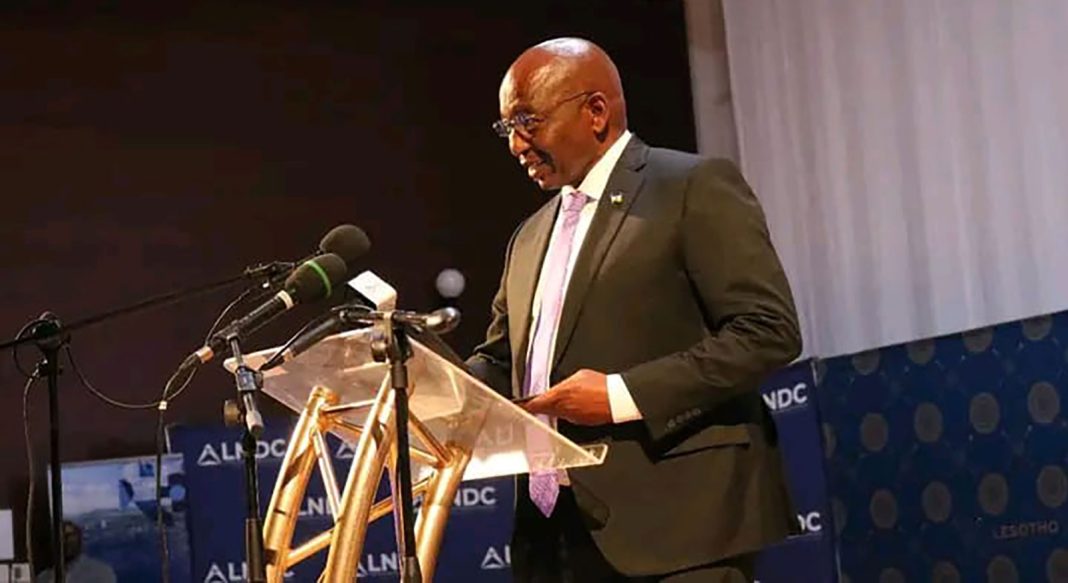As a young social activist dedicated to advancing youth and women’s rights, Pearl Lawrence found that advocacy is not just a passion, but also a powerful tool for navigating the corporate world of project management.
Lawrence says by championing these causes, she has gained unique insights into leadership, resilience, and strategic thinking. These experiences have equipped her to tackle challenges with a fresh perspective, drive impactful change, and foster inclusive environments in her projects.
She tells theReporter’s Neo Kolane in this interview that she looks forward to leveraging these skills further to bridge gaps between advocacy and corporate goals, ensuring that her projects succeed but also contribute to a more equitable and supportive workplace for everyone. Here’s to driving positive change and inspiring others along the way!
How effectively are laws against Gender-Based Violence (GBV) being implemented in Lesotho, and what improvements are needed to protect women from violence?
While Lesotho has enacted laws to address GBV, such as the Sexual Offences Act, implementation remains weak. Cultural stigmas, limited legal resources, and the lack of protection services for survivors create significant barriers.
To improve, we need more shelters, accessible legal aid, and stronger enforcement of protective orders. There is also a need for continuous public education on GBV to challenge societal norms that condone violence.
What obstacles do women in Lesotho face in accessing economic opportunities, such as land ownership and unemployment, and what measures can address these barriers?
Women in Lesotho face cultural and legal barriers to land ownership, which limit their economic participation. Traditional inheritance practices often favour male relatives, and unemployment among women remains high due to limited access to education and financial capital.
To overcome these barriers, we need legal reforms that guarantee women’s equal rights to land and inheritance. Financial literacy programmes, access to credit, and mentorship initiatives specifically targeting women entrepreneurs would also help.
How do traditional customs and practices in Lesotho impact women’s access to healthcare, particularly reproductive health services?
Traditional customs in Lesotho, such as early marriage and cultural taboos surrounding reproductive health, limit women’s access to essential services. This is compounded by a lack of health infrastructure, particularly in rural areas. Addressing these issues requires integrating cultural sensitivity into health outreach programs and partnering with local leaders to advocate for reproductive rights.
Additionally, improving healthcare infrastructure and increasing community education on reproductive health would also be vital steps.
What are the current challenges in increasing women’s representation in political and leadership roles in Lesotho, and how can these challenges be overcome?
Cultural biases, limited access to education, and economic inequality restrict women’s political participation in the country. Women are often expected to prioritise family responsibilities over leadership roles. To overcome these challenges, we need gender quotas in political and leadership roles, mentoring programmes to empower young women, and increased political education for women. Amplifying women’s voices through platforms like “She’s Outta Your League” can also help challenge these systemic barriers.
What are the main challenges in enforcing child protection laws in Lesotho, and how can the government and other stakeholders improve the protection of children from abuse and exploitation?
The enforcement of child protection laws is hindered by poverty, lack of awareness, and limited social services. Many children remain vulnerable to abuse and exploitation, particularly in rural areas. To address this, the government should increase investment in child protection agencies and ensure better training for law enforcement on children’s rights. Collaborative efforts between NGOs (non-governmental organisations) and the government to raise awareness and provide counselling and support services for children are also crucial.
How does access to quality education vary across different regions in Lesotho, and what steps can be taken to ensure equal educational opportunities for all children?
There is a stark urban-rural divide in educational access in Lesotho, with children in remote areas lacking qualified teachers, adequate facilities, and learning materials. To address this, the government could invest in digital learning tools, improve school infrastructure, and incentivise teachers to work in underserved areas. Partnerships with international organisations can also help fund education programmes that target marginalised communities.
What are the key barriers to accessing healthcare services for children in Lesotho, and how can health systems be improved to better serve children’s needs?
Access to healthcare for children is limited by poverty, geographic isolation, and inadequate healthcare infrastructure. Many rural clinics lack essential medicines, and trained pediatric specialists are scarce. To improve this, expanding mobile health clinics, investing in child healthcare training for medical staff, and strengthening partnerships with international health organisations are necessary. Additionally, increasing health education for parents would ensure better health outcomes for children.
In what ways can the voices and perspectives of children be better integrated into policies and decisions that impact their lives?
Children’s voices are often overlooked in policymaking, yet their perspectives are crucial in shaping child-focused policies. Establishing child parliaments or councils, where children can express their concerns, is one way to integrate their input. Schools and NGOs can also play a role by creating safe spaces for children to share their views. The government should prioritise including youth representatives in decision-making bodies that impact children’s rights and welfare.









